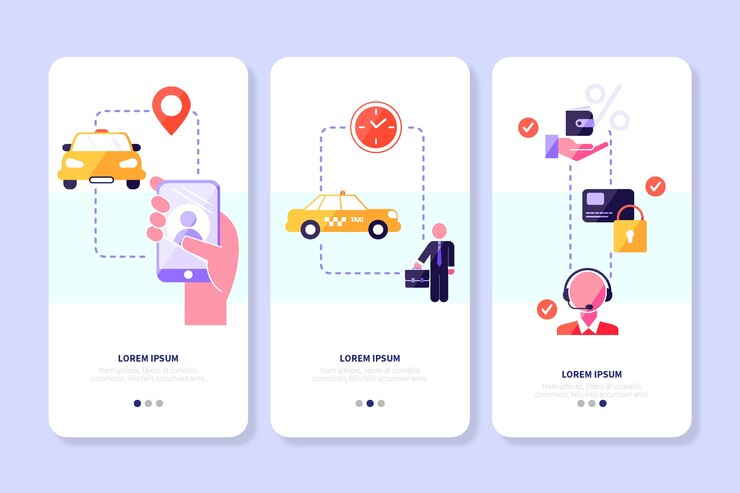Peer-to-peer (P2P) car sharing is rising, driving demand for flexible transportation options and the car rental app development industry. In this dynamic landscape, a user-friendly and feature-rich mobile app can be a game-changer for businesses.
This article outlines a comprehensive roadmap for successful car rental app development in 2024, incorporating the latest trends and considerations.
1. Define Your Niche and Competitive Analysis:
- Market Research: Thoroughly research the existing car rental app development market landscape. Analyze established players like Hertz and Zipcar, as well as emerging P2P rental services like Turo. Identify any underserved gaps or unique value propositions your app can offer.
- Target Audience: Define your ideal customer base. Are you targeting business travelers, budget-conscious tourists, or a niche market seeking luxury rentals? Understanding their needs and preferences will shape the app’s functionalities.
2. Core Features and Functionalities:
- User Interface (UI) and User Experience (UX): Prioritize a clean, intuitive, and user-friendly interface. Simple navigation, clear search filters, and a smooth booking process are crucial for a positive user experience.
- Car Search and Availability: Users should be able to search for cars based on various criteria, including location, date, time, car type (sedan, SUV, etc.), and budget. Real-time availability information is essential.
- Secure Booking System: Integrate a secure payment gateway to facilitate online transactions. Consider options for in-app deposits and secure storage of user payment information.
- Account Management: Users should be able to create accounts to store personal details, past booking history, and preferred rental options.
- Location Services: Utilize geolocation features to enable users to find nearby car rental app development locations and track their booked vehicles (if applicable).
3. Advanced Features for a Competitive Edge:
- Car Comparison Tool: Incorporate a feature allowing users to compare car options based on price, features, and ratings.
- Push Notifications: Send real-time alerts and updates to users regarding bookings, car availability, special offers, and loyalty programs.
- Integrated GPS Navigation: Partner with mapping services to provide turn-by-turn navigation within the app, assisting users in locating pick-up and drop-off points.
- Damage Reporting: Enable a seamless in-app system to report any damage incurred during the rental period.
- 24/7 Customer Support: Provide multiple customer support channels, such as in-app chat, email, or phone helplines.
4. Additional Considerations in 2024:
- Focus on Electric Vehicles (EVs): As the EV market expands, your app should cater to the growing demand by incorporating a wider selection of electric car options.
- Incorporate AI and Machine Learning: Leverage AI to personalize the user experience by recommending suitable car options based on past preferences and search history.
- Blockchain Technology: Consider implementing blockchain technology for secure and transparent car rental app development transactions, particularly for P2P car-sharing models.
5. Development Process:
- Mobile App Development Approach: There are two primary options:
- Do-it-yourself (DIY): This approach requires technical expertise in mobile app development and can be time-consuming and resource-intensive for businesses.
- Hiring a Mobile App Development Company: Partnering with a professional development team with experience building car rental app development offers a faster, more efficient solution and access to specialized knowledge.
Factors to consider when choosing a development company:
- Portfolio and experience in building car rental apps
- Team expertise in relevant technologies and frameworks
- Cost-effectiveness and development timeline
- Strong communication and project management skills
6. App Launch, Marketing, and Maintenance:
- App Store Optimization (ASO): Optimize your app listing with relevant keywords and descriptions to improve discoverability in app stores.
- Marketing Strategy: Develop a comprehensive marketing plan that leverages various channels, such as social media advertising, influencer marketing, and strategic partnerships.
- App Maintenance and Updates: Regularly address bug fixes, introduce new features based on user feedback, and ensure compatibility with the latest operating systems.
Conclusion
Building a successful car rental app in 2024 requires a well-defined strategy incorporating the latest trends and technological advancements. By focusing on a user-centric approach, offering a robust feature set, and prioritizing continuous improvement, you can create a valuable tool that streamlines the car rental experience for businesses and customers.

